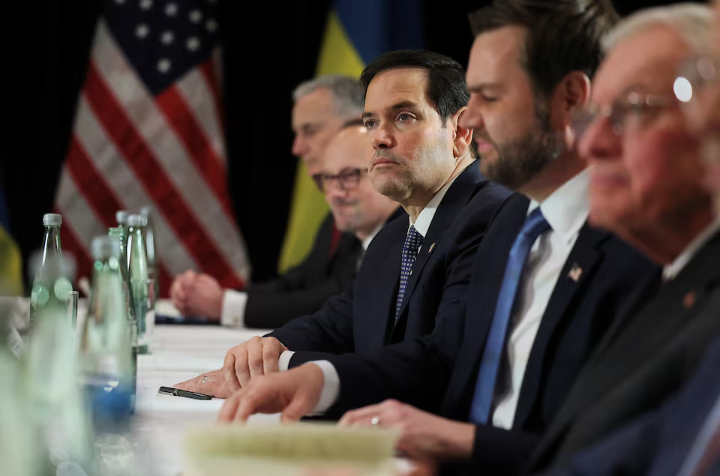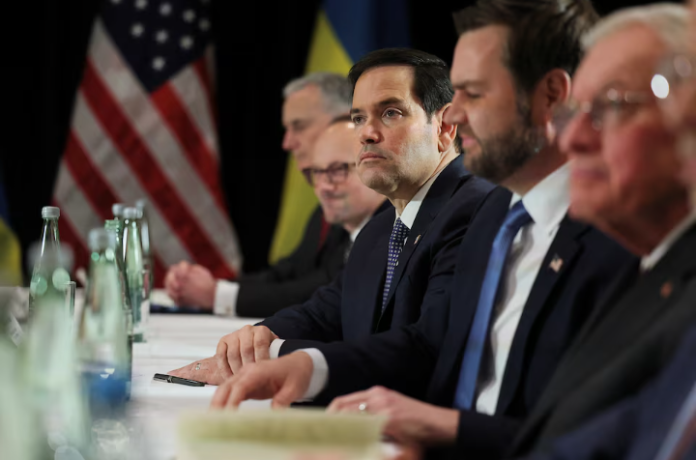At the recent Munich Security Conference, European officials were taken aback by the Trump administration’s unexpected policy shifts concerning Ukraine, Russia, and European defense. The rapid developments have left Europe questioning the reliability of U.S. military support and fearing potential exclusion from critical peace negotiations.
U.S. Signals Policy Shift
U.S. Vice President JD Vance’s address at the conference offered minimal mention of Ukraine and European defense, instead focusing on criticisms of Europe’s approach to free speech and migration. This omission intensified European concerns about America’s commitment to the continent’s security.
Further unsettling European delegates, U.S. Defense Secretary Pete Hegseth stated at NATO headquarters that a peace agreement would exclude NATO membership for Ukraine and deemed it unrealistic for Ukraine to reclaim its pre-2014 borders, which include Crimea. Hegseth emphasized that “stark strategic realities” prevent the U.S. from prioritizing European security.
Europe’s Response
In reaction, European leaders are advocating for increased self-reliance in defense. Ukrainian President Volodymyr Zelenskyy called for the formation of a European army, emphasizing that decisions about Ukraine’s future should involve both Kyiv and European nations. German Chancellor Olaf Scholz defended Europe’s democratic values and stressed that lasting peace in Ukraine hinges on securing its sovereignty.
The urgency for a cohesive European defense strategy has grown, yet consensus on its organization and funding remains elusive. European nations are also under pressure from the U.S. to devise security guarantees for Ukraine, a topic set for discussion at an upcoming summit in Paris.
Exclusion from Peace Talks
European apprehensions about being sidelined were heightened when U.S. envoy, retired Lieutenant General Keith Kellogg, announced that Europe would not participate directly in peace talks, though their perspectives would be considered. Plans have emerged for U.S. and Russian officials to convene in Saudi Arabia to initiate discussions aimed at resolving the conflict.

U.S. officials maintain that any peace agreement will be durable and include Ukraine at the negotiating table. However, the choice of Munich as the conference venue—a city historically linked to the 1938 appeasement pact—has led some European leaders to draw unsettling parallels. European foreign policy chief Kaja Kallas remarked, “As I stand here in Munich tonight, I cannot help but ask: Have we been here before?”
Mounting Concerns
The flurry of U.S. policy announcements has left European leaders scrambling to adapt. The Trump administration’s recent actions, including proposing that Ukraine allocate 50% of its rare earth minerals to repay U.S. aid—a proposal President Zelenskyy criticized for lacking necessary security assurances—have further strained relations.
Additionally, Vice President Vance’s meeting with leaders of Germany’s far-right Alternative for Germany (AfD) party, ahead of national elections, has raised eyebrows among European diplomats. One European diplomat observed, “It is clear now that the U.S. wants to break the post-World War Two order that they created. And that includes destroying the EU. We will have to be prepared for that and change our attitude completely.”
As Europe grapples with these developments, the future of transatlantic relations and the stability of the region remain in a delicate balance.



